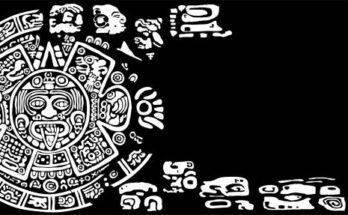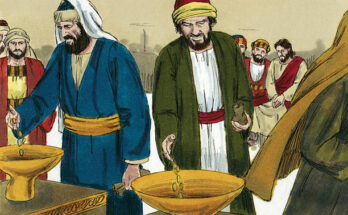Christianity and colonization: Discover the important Aspects
Christianity served as the official religion of the historical European colonial powers, which were also heavily Christian. Therefore, Christianity and colonialism are frequently associated in different denominations (e.g., Protestant, Catholic, and Orthodox). Christian missionaries served as a “religious weapon” for European colonial nations through a variety of means.
Almost all of the colonists were compelled to convert to Christianity and were turned away from their native religion. It served as a justification for colonists to kill adherents of other religions. Also to enslave indigenous people, and exploit the land and the oceans.
Discover what is the relationship between Christianity and Colonialization. Christianity has been used as a valid excuse and reason for colonialism. Know more about its politics in this article.
Looking at history of Christianity
Image Credits: Unsplash.com
Because religious teachings were used to justify colonial acts, critics of colonialism have criticized Christianity. Some missionaries, according to Toyin Farora, thought that “the aims of colonialism in Africa were similar to those of Christianity.” Farora stated, “Colonialism is a form of imperialism based on a divine mission to share the blessings of a Christ-inspired civilization.
Through People and Western nations affected by a confluence of political, economic, and religious forces. These work together under a regime that seeks the interests of both rulers and ruled. And suffers from satanic oppression, ignorance, and disease, it seeks to bring about spiritual, cultural, economic, and political emancipation.
Church historians and Christianity
The earliest church historians who documented mission history did so with hagiographic tales of their tribulations, victories, and occasionally martyrdom. In a sea of perpetual savagery, the missionaries were thus seeming saints and models of perfect piety. But missionaries were viewed entirely differently in the middle of the 20th century. During a period characterized by growing secularization, anti-colonialism, and civil rights movements.
The missionaries pushed Christianity, an aggressive and monolithic force, on the disobedient locals; it was not a saving grace.
Age of discovery
Image Credits: Unsplash.com
The Catholic Church launched a significant campaign to convert. This included Native Americans and other indigenous peoples to Christianity during the Age of Discovery. A significant component of the justification for the colonial endeavors of European countries like Spain, France, and Portugal was missionary activity.
European Christians’ religious beliefs and the settlement of new lands were methods of proselytizing indigenous peoples. The ideas of European exploration and the spread of Christianity were identical.
Monastic organizations including the Augustinian, Franciscan, Jesuit, and Dominican orders managed the majority of missions in the Americas and other colonies in Asia and Africa. Religion was an essential component of state life in both Portugal and Spain. And Christianization was viewed as having both material and spiritual advantages.
The concept of exploring new lands was put out to the religious leaders by Portuguese explorers. They claimed that “honor and glory would fall not only on the whole of Christendom. But also on this holiest Peter’s See.” approved based on careful consideration. The missionaries quickly follow these powers wherever they aim to increase their dominion and influence.
Conversion in India and Christianity
When Afonso de Albuquerque and other Portuguese explorers arrived in Goa in 1510, native Goan women married to Portuguese men became the first Christians in the region. From Portugal, Goa received missionaries from a number of orders, including Franciscan, Dominican, Jesuit, Augustinian, and others.
True Christianity?
Image Credits: Unsplash.com
False Christianity has led to many individuals being misled. Numerous organizations are accused of incorporating concepts and doctrines that contradict the Bible yet are nonetheless considered Christian(s). Since they are all called Christians, it can be confusing, but any kind of Christianity that is not in line with the Bible and the message of Jesus Christ is false. Numerous individuals have attempted to weaken Christianity by not adhering to all of the Bible’s requirements. The term “Christian” refers to following Christ and becoming like Christ; selective Christianity is not what constitutes Christianity.
Human vs God
People may behave independently of God while believing they are carrying out God’s plan. It is crucial to both have a solid understanding of God’s word and submit to the Spirit of God’s direction. Since human beings are prone to making mistakes, we should always exercise caution and ensure that our actions are in line with God’s will rather than our own self-serving goals. The hunger and appetite of man will always lead him wrong.
Since Jesus is indeed our only hope, if others who attempt to follow Him are failing. Then you should follow Him correctly and make an effort to be a success as well. Instead of using the lost souls as a justification to join the losing team, provide an example for them. Make it real that your connection with God and your Christianity are personal matters.
Word of God: Christianity

Image Credits: Pexels.com
The foundation of true Christianity is found in the Word of God; Christ led an unselfish and faultless life. Christians attempt to follow him. Despite the fact that the majority of them delude themselves by practicing a form of Christianity whose tenets are not even present in the Bible.
I’m not trying to upset anyone; I’m just trying to be blunt. Christians should concentrate on improving themselves because Christ will never change. And any other gospel that deviates from the word’s teachings is wholly false—even if it goes by the name of Christianity.
The Bible states that “in everything you do, gain understanding,” because although the colonists succeeded in converting people, they lacked wisdom. The Jesus of the Bible does not coerce people to follow Him; if He so desired, He is not the kind of God who would do such a thing. God wants us to acknowledge His unwavering love for us and voluntarily give ourselves to Him.







